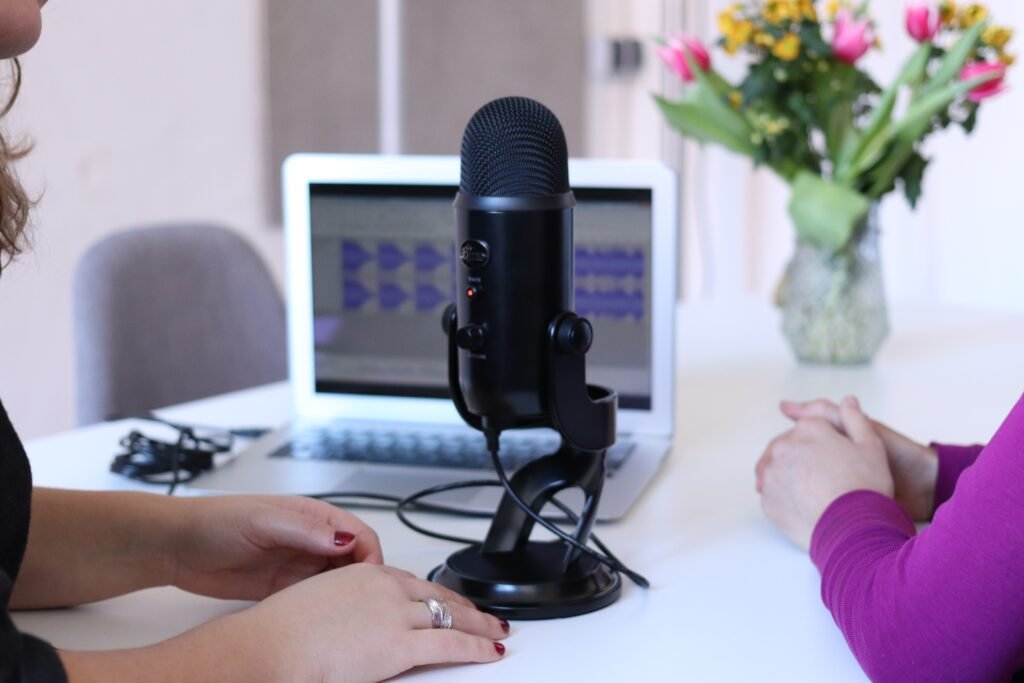
Megan Lupton is a PhD candidate at De Montfort University investigating the ethics of true crime content. As part of her research, she conducted semi-structured interviews with true crime practitioners to understand how they navigate ethical dilemmas associated with their genre. The knowledge exchange between Megan, the researcher, and the interviewees was a surprising yet welcome by-product of the interview series. Megan discusses how compassionate interviewing techniques facilitated this knowledge exchange.
As a genre, true crime has received significant scrutiny in recent years; in 2021, The New York Times questioned whether real-life crime-related content does more harm than good. According to journalist Amanda Knox, true crime is an impactful yet largely unregulated genre which may romanticise violent crimes and re-traumatise victims. Despite such warranted criticisms, true crime podcasts like Payne Lindsey’s Up and Vanished have also aided police investigations, bringing justice to victims and their families. These juxtaposing truths led me to investigate ethics in true crime for my practice research PhD project.
I wanted to discuss the topic with true crime podcasters to hear their thoughts on ethics in their genre and discuss how they mitigate harm to victims. Among other questions, I asked the interviewees whether they had crossed an ethical line and negatively impacted victims, their families or other people connected to the crime. Their answers provided valuable insights into the creative process of producing true crime content and how podcasters can avoid unethical investigative techniques in favour of journalistic integrity.
Truthfully, I expected the participants to be defensive and prepared for such a response. I was, in essence, questioning their moral and ethical integrity as both people and professionals. So, I was surprised when many of the participants responded with vulnerability, admitting to instances where they felt they had acted unethically and showing genuine remorse for their actions. Upon reflection, my compassionate, judgment-free approach to the interviews created a trusting environment for my participants to speak candidly. I fulfilled my role as a researcher by collecting data, but I also presented myself as a member of the true crime community, someone who understood the complex nature of the genre. Most importantly, I was not there to pass judgment but to hold space for personal reflection.
My approach to the interviews forged positive relationships between myself and my participants, and many of them wanted to remain in contact. The free-flowing discussion around ethics also created a safe space for them to reflect on their practice. The true crime practitioners shared their opinions and experiences. In turn, I shared insight into my research findings to date, including how I believed the genre could become more ethical. At the time, the interactions were straightforward; I have always enjoyed open debates and discussions on diverse topics. However, during my debriefs with the practitioners, I learned that the knowledge exchange led many of them to adapt their practice to be more ethical.
With one of the practitioners, for example, we discussed the importance of keeping people anonymous unless it was otherwise essential to the podcast episode. Our back and forth offered a new perspective on the topic, and they revealed during our debrief that they had rewritten multiple podcast scripts to anonymise some of the individuals mentioned. Learning this led me to reflect on the value of my research: If a brief yet compassionate discussion of ethics in true crime could lead practitioners to change their craft, how could this approach be used in the wider industry? The knowledge exchange facilitated through the semi-structured interviews also led me to develop my ethical framework, turning it into a reflexive worksheet instead of a formal how-to guide for true crime practitioners.
Qualitative researchers naturally view participants as a source of data. Participants in research studies are a means to an end, an answer to our questions. However, semi-structured interviews can also provide an opportunity for open discussions and, therefore, knowledge exchange between the researcher and the participant. By creating a trusting, judgement-free environment and taking the role of a compassionate interviewer, interviewees are more likely to participate in an exchange of knowledge.
Image: Unsplash
